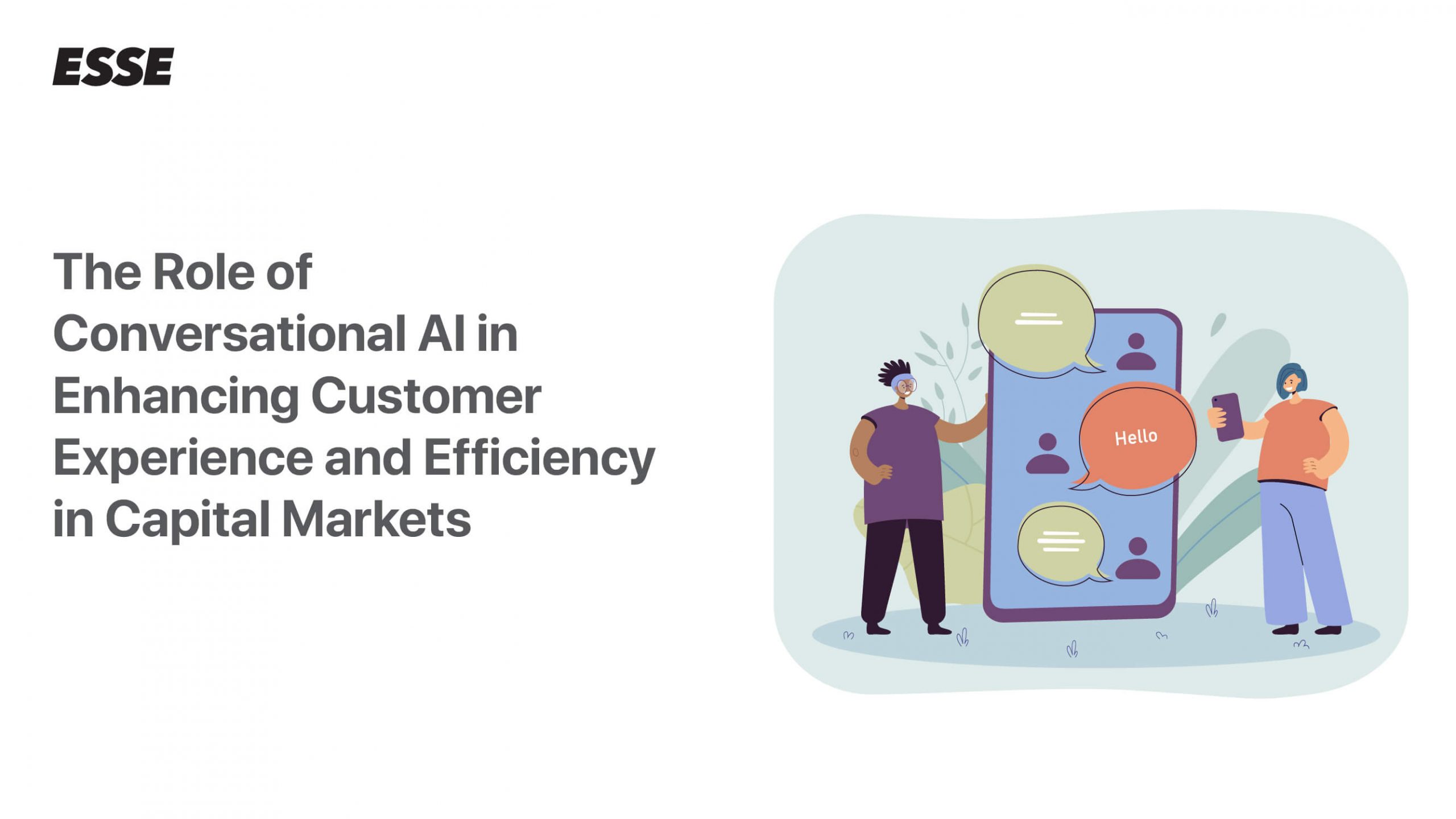Conversational AI has become a hot topic in the financial industry, especially in capital markets. With the help of conversational AI, companies are now able to provide personalized investment advice, improve customer service, and optimize trading strategies. In this blog post, we will dive into the various ways conversational AI is changing the game in capital markets.
Personalized Investment Advice
Conversational AI is a powerful tool for providing personalized investment advice. By analyzing data on a customer’s investment history, risk tolerance, and financial goals, conversational AI can recommend investment opportunities that align with the customer’s objectives. This level of personalization helps to build trust and loyalty with customers, as they feel that their unique needs and preferences are being taken into account.
Improved Customer Service
Conversational AI can also improve customer service by providing real-time assistance and support. For instance, virtual assistants powered by conversational AI can answer frequently asked questions and provide customers with instant access to relevant information. This can help to reduce wait times and improve the overall customer experience. Additionally, conversational AI can be used to automate routine tasks, such as account balance inquiries and fund transfers, freeing up customer service representatives to focus on more complex issues.
Optimized Trading Strategies
Conversational AI can be used to optimize trading strategies in the capital markets. By analyzing market data in real-time, conversational AI can identify trends and patterns that human traders may miss, and make data-driven investment decisions accordingly. This can help to improve the efficiency and effectiveness of trading strategies, as well as reduce the risk of human error.
Challenges and Ethical Considerations
While conversational AI provides many benefits to the capital markets industry, it is important to consider the potential risks and ethical considerations. For example, there is a risk of bias in the algorithms used to analyze customer data and provide investment recommendations. Additionally, there is a risk of overreliance on AI, which could lead to a loss of human expertise and judgment.
To mitigate these risks, companies need to develop robust data governance policies, implement transparent algorithms that can be audited and reviewed, and prioritize the ethical use of conversational AI. It is also important to ensure that human oversight and judgment are retained in decision-making processes and that customers are fully informed about how their data is being used and protected.
Conclusion
Conversational AI is changing the game in the capital markets industry, providing personalized investment advice, improving customer service, and optimizing trading strategies. With the right approach, conversational AI can help create a more efficient and customer-centric industry.


Leave a Reply